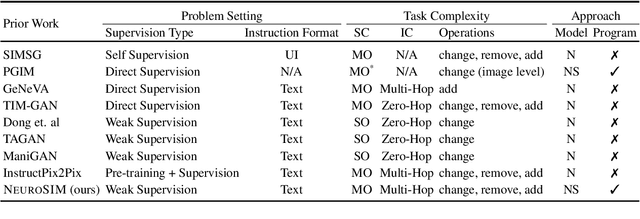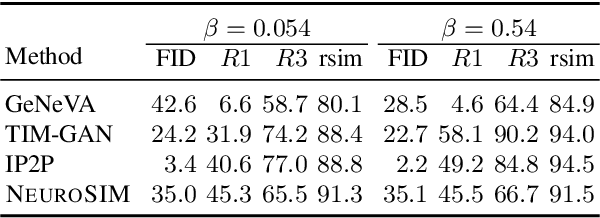Poorva Garg
Scaling Integer Arithmetic in Probabilistic Programs
Jul 25, 2023
Abstract:Distributions on integers are ubiquitous in probabilistic modeling but remain challenging for many of today's probabilistic programming languages (PPLs). The core challenge comes from discrete structure: many of today's PPL inference strategies rely on enumeration, sampling, or differentiation in order to scale, which fail for high-dimensional complex discrete distributions involving integers. Our insight is that there is structure in arithmetic that these approaches are not using. We present a binary encoding strategy for discrete distributions that exploits the rich logical structure of integer operations like summation and comparison. We leverage this structured encoding with knowledge compilation to perform exact probabilistic inference, and show that this approach scales to much larger integer distributions with arithmetic.
Image Manipulation via Multi-Hop Instructions -- A New Dataset and Weakly-Supervised Neuro-Symbolic Approach
May 23, 2023



Abstract:We are interested in image manipulation via natural language text -- a task that is useful for multiple AI applications but requires complex reasoning over multi-modal spaces. We extend recently proposed Neuro Symbolic Concept Learning (NSCL), which has been quite effective for the task of Visual Question Answering (VQA), for the task of image manipulation. Our system referred to as NeuroSIM can perform complex multi-hop reasoning over multi-object scenes and only requires weak supervision in the form of annotated data for VQA. NeuroSIM parses an instruction into a symbolic program, based on a Domain Specific Language (DSL) comprising of object attributes and manipulation operations, that guides its execution. We create a new dataset for the task, and extensive experiments demonstrate that NeuroSIM is highly competitive with or beats SOTA baselines that make use of supervised data for manipulation.
 Add to Chrome
Add to Chrome Add to Firefox
Add to Firefox Add to Edge
Add to Edge